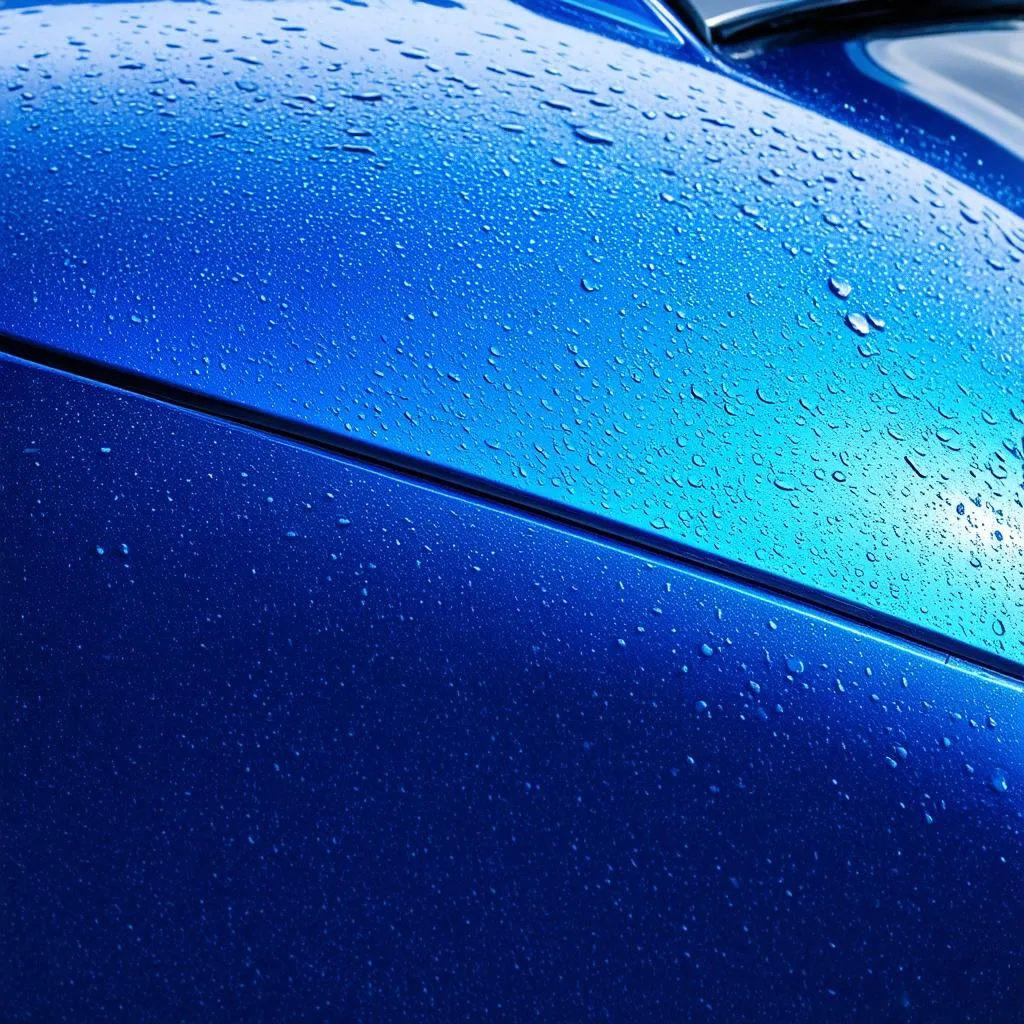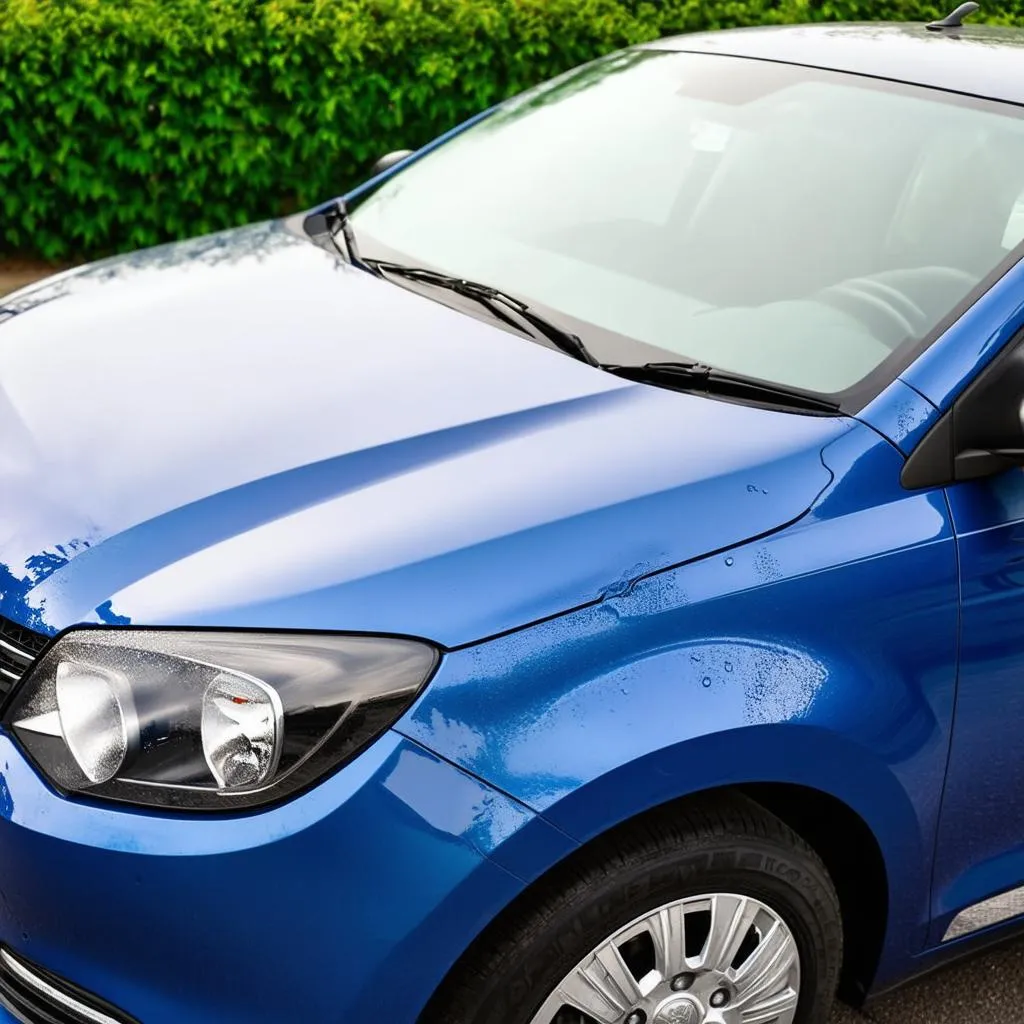Have you ever washed your car, only to be met with stubborn water spots that just won’t budge? You meticulously scrubbed, rinsed, and dried, yet your car still ends up looking like it drove through a desert sandstorm. Frustrating, isn’t it? Well, the culprit might be your water. Hard water, laden with minerals, is often the reason for those unsightly spots. That’s where a Car Washing Water Softener comes in – your secret weapon for a truly sparkling clean.
What is a Car Washing Water Softener and Why Do You Need One?
Let’s break it down. Think of hard water as the nemesis of a perfect car wash. It’s packed with minerals like calcium and magnesium, which, while harmless for drinking, wreak havoc on your car’s paint. When hard water dries, it leaves behind those mineral deposits, causing water spots. These spots not only diminish your car’s shine but can also, over time, etch into the paint, leading to permanent damage.
Now, imagine a car washing experience where water glides off your vehicle, leaving behind a pristine, spot-free shine. That’s the magic of a water softener.
Here’s how it works:
- Ion Exchange: Most car washing water softeners utilize an ion exchange process. Imagine tiny beads inside the softener. These beads are charged with sodium ions. As hard water passes through, the calcium and magnesium ions are swapped with sodium ions. This “softened” water, now free of spot-causing minerals, allows your car wash soap to lather better and rinse away cleanly.
Benefits of using a Car Washing Water Softener:
- Spot-free rinse: Say goodbye to frustrating water spots and hello to a brilliant shine.
- Enhanced soap performance: Softened water helps your car wash soap work more effectively, leading to a deeper clean.
- Gentle on your car’s paint: Protects your car’s finish from mineral deposits, preserving its shine and value.
 car wash water spots
car wash water spots
Different Types of Car Washing Water Softeners
Just like cars, car washing water softeners come in different shapes and sizes:
1. Inline Water Softeners:
These are permanently installed on your water line, treating all the water that flows through it. While ideal for whole-house water softening, they might be overkill if you’re only looking to soften water for car washing.
2. Portable Water Softeners:
These compact units are perfect for car washing. They can be easily connected to your hose and offer on-demand softened water.
3. DIY Water Softening Solutions:
For the DIY enthusiast, there are homemade options like using a bucket filter or adding a water softener solution to your wash bucket. While these methods might be less expensive, they may not be as effective as dedicated water softeners.
Choosing the Right Water Softener for Your Needs:
Selecting the best car washing water softener depends on your specific requirements. Consider these factors:
- Frequency of use: Do you wash your car frequently? If so, a portable or inline softener might be a worthwhile investment.
- Water hardness level: A simple test kit can determine the hardness of your water. The higher the hardness, the more robust a softener you’ll need.
- Budget: Water softeners come in a range of prices. Set a budget that aligns with your needs and usage.
Expert Tip: “Investing in a quality car washing water softener is crucial for preserving your car’s paint and maintaining its shine. I highly recommend opting for a softener specifically designed for car washing to achieve optimal results,” says Mark Thompson, an automotive detailing expert and author of “The Art of Automotive Detailing”.
FAQs about Car Washing Water Softeners:
Do I really need a water softener if I use a drying towel?
While drying towels can help minimize water spots, they don’t entirely eliminate the minerals present in hard water. A water softener ensures that no minerals are left behind on your car’s surface, guaranteeing a spot-free finish.
Can I use a regular water softener for car washing?
While you can technically use a regular household water softener for car washing, it’s not ideal. Household softeners are designed for different water flow rates and may not effectively soften the water for optimal car washing.
How often do I need to replace the softener resin in my unit?
The lifespan of softener resin varies depending on usage and water hardness. However, most manufacturers recommend replacing the resin every few years to ensure optimal performance.
Maintaining Your Car Washing Water Softener
Like any piece of equipment, your car washing water softener requires some TLC to keep it running smoothly:
- Regular flushing: Flushing your softener helps remove any accumulated sediment and prolongs its lifespan.
- Check salt levels (for salt-based softeners): Salt is essential for the ion exchange process. Regularly check and refill the salt level in your softener to ensure its effectiveness.
- Follow manufacturer instructions: Always refer to the manufacturer’s instructions for specific maintenance guidelines for your model.
 shiny car after wash
shiny car after wash
Explore More Car Care Tips and Tricks
Interested in more ways to keep your car looking its best? Check out these related articles:
- The Ultimate Guide to Choosing the Perfect Car Wash Soap
- Protecting Your Car’s Paint: Wax vs. Sealant
- Detailing Like a Pro: Interior Car Cleaning Tips and Tricks
Need help setting up your new car washing water softener? Contact us on Whatsapp at +84767531508. Our team of automotive experts is available 24/7 to provide guidance and support.
Achieve That Showroom Shine
A car washing water softener is more than just an accessory – it’s an investment in your car’s appearance and longevity. By preventing water spots and enhancing your car wash routine, a water softener helps you achieve that coveted, head-turning shine. So, say goodbye to frustrating water spots and hello to a sparkling clean car that makes you proud to hit the road.